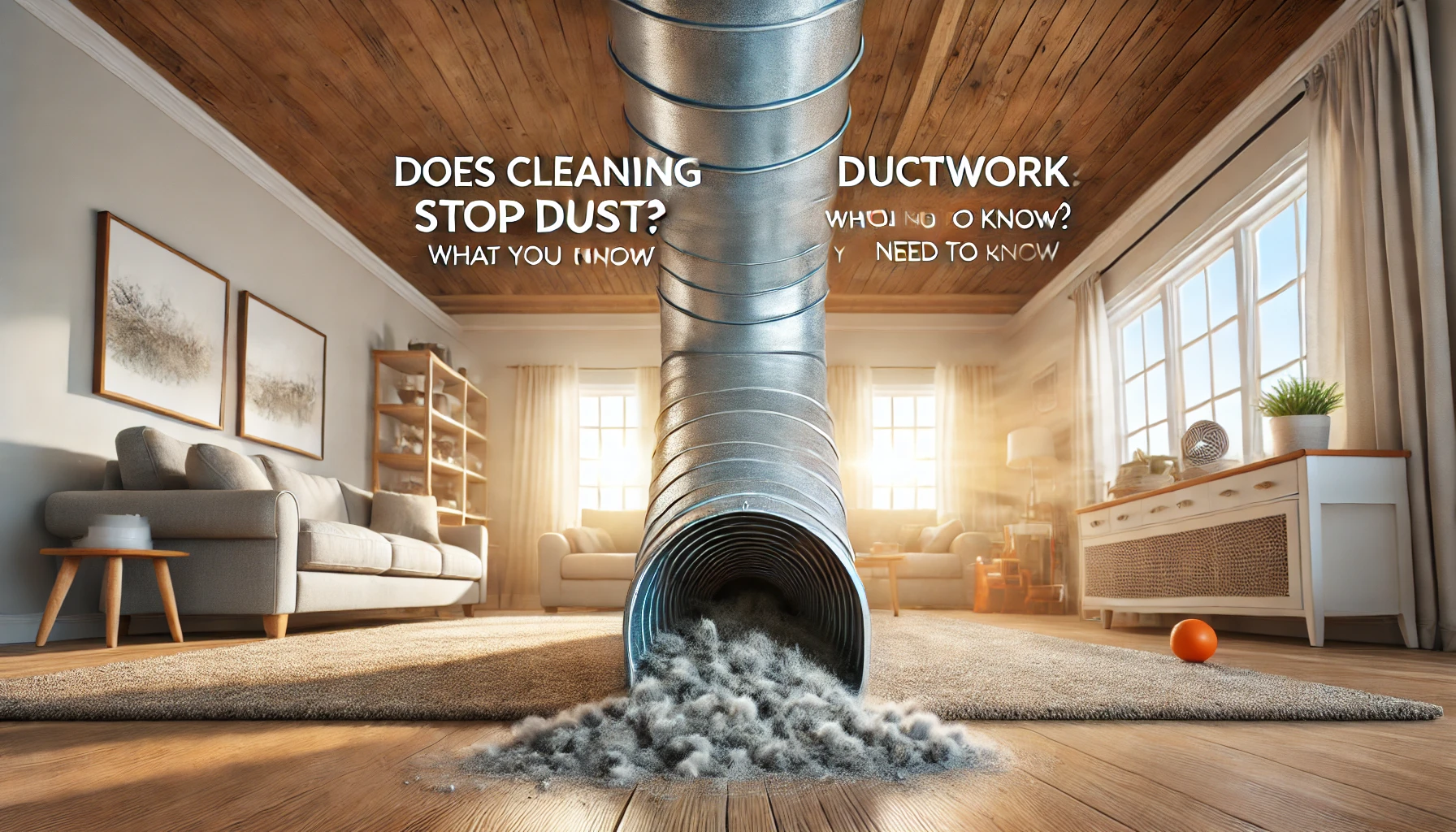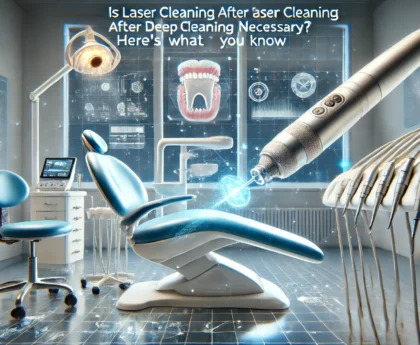- Introduction: Understanding Ductwork and Dust Accumulation
- Does Cleaning Ductwork Stop Dust?
- How Often Should Ductwork Be Cleaned?
- Benefits of Cleaning Ductwork
- Limitations of Cleaning Ductwork for Dust Reduction
- Is Professional Duct Cleaning Necessary?
- Additional Ways to Reduce Dust in Your Home
- Does Duct Cleaning Improve Energy Efficiency?
- Conclusion: Is Duct Cleaning the Key to a Dust-Free Home?
Introduction: Understanding Ductwork and Dust Accumulation
Ductwork is an important part of your HVAC system (heating, ventilation, and air conditioning). It is a network of tubes that carries heated or cooled air throughout your home. The ductwork helps distribute air to keep your house comfortable. However, over time, dust can collect inside these ducts.
Dust accumulation in ductwork happens when air circulates through the system. Dust, dirt, pet hair, and other particles can get trapped inside the ducts. When the HVAC system runs, it can push this dust back into your home, leading to a buildup of dust in rooms and on surfaces.
Many homeowners have concerns about dust in their homes. Dust can make your home feel dirty, trigger allergies, and affect air quality. People often wonder if cleaning the ductwork can stop dust from spreading around the house. Understanding how dust builds up and how cleaning can help is important for maintaining a healthy living space.
Does Cleaning Ductwork Stop Dust?
Many homeowners ask, “does cleaning ductwork stop dust?” The simple answer is that cleaning your ductwork can help reduce dust levels in your home, but it might not completely stop dust from accumulating. When dust collects inside the ducts, it can be blown out through the vents every time the HVAC system runs. Regular cleaning can remove this built-up dust and help keep your home cleaner.
There are specific situations where duct cleaning helps reduce dust. If you’ve recently done renovations, have pets, or live in a dusty area, your ductwork may collect more dust than usual. In these cases, cleaning the ducts can be more effective at reducing the amount of dust being circulated in your home. It’s also helpful if your air filters are clogged or your HVAC system is older.
However, the role of air filters and ventilation systems is just as important in controlling dust. Air filters trap dust and other particles before they enter the ducts. Using high-quality air filters and replacing them regularly can prevent dust from building up in the first place. A good ventilation system also keeps air moving and helps reduce dust by filtering the air more efficiently.
How Often Should Ductwork Be Cleaned?
When wondering “does cleaning ductwork stop dust?”, it’s important to know how often ductwork should be cleaned. Regular maintenance is key to keeping your home dust-free and your HVAC system running efficiently.
There are several signs your ductwork needs cleaning. If you notice excessive dust buildup on surfaces shortly after cleaning, musty smells coming from the vents, or increased allergy symptoms, these could be signs that your ducts are dirty. Additionally, if you see visible dust or debris inside the vents, it’s time to consider a cleaning.
The recommended cleaning schedule depends on your environment and how often you use your HVAC system. For most homes, cleaning every 3 to 5 years is sufficient. However, if you live in a dusty area, have pets, or recently completed home renovations, you may need to clean the ducts more often, perhaps every 2 years.
You can tell if dust is coming from your ducts by checking the area around your vents. If dust seems to be collecting faster near vents or if you notice dust blowing out when the HVAC system starts, it’s likely your ducts need attention. Regularly replacing air filters can also help prevent dust from entering your ducts and spreading throughout your home.
Is Laser Cleaning After Deep Cleaning Necessary? Here’s What You Need to Know
Benefits of Cleaning Ductwork
Cleaning your ductwork offers several important benefits, especially if you’re wondering “does cleaning ductwork stop dust?” While it may not completely eliminate dust, it provides many advantages for your home and health.
One of the main benefits is improving indoor air quality. Over time, dust, dirt, and other particles can accumulate in your ducts, which can affect the air you breathe. Cleaning the ducts removes these particles, leading to cleaner and fresher air in your home.
Another significant benefit is reducing allergens and respiratory issues. Dust, pollen, pet dander, and mold can build up in your ductwork, triggering allergies and respiratory problems for people in the home. By cleaning the ducts, you reduce these allergens and create a healthier environment, especially for those with asthma or allergies.
Cleaning your ducts also helps in enhancing HVAC system efficiency. When your ducts are clogged with dust and debris, your HVAC system has to work harder to circulate air, which can increase energy bills. Clean ducts allow air to flow freely, making your system run more efficiently and saving you money.
Lastly, regular duct cleaning helps prevent dust buildup in other areas of your home. When dust is trapped in the ducts, it can be blown back into the rooms, leading to more frequent dusting and cleaning. By keeping the ducts clean, you can reduce the amount of dust settling on your furniture and floors.
Limitations of Cleaning Ductwork for Dust Reduction
While cleaning ductwork offers many benefits, it’s important to understand that it may not fully eliminate dust in your home. If you’re asking, “does cleaning ductwork stop dust?”, the answer is that it helps, but it’s not a complete solution.
Cleaning ducts may not fully eliminate dust because there are many other sources of dust in your home. Everyday activities like walking, sitting on furniture, or opening doors can stir up dust from common sources, such as carpets, rugs, furniture, and floors. Dust also comes from fabric fibers, pet dander, and even skin cells. No matter how clean your ducts are, these sources will still contribute to dust buildup in your living space.
Dust continues to circulate in the air, even after duct cleaning, due to the nature of your home environment. Airborne dust can settle on surfaces and then get recirculated through your HVAC system. While duct cleaning reduces the amount of dust being blown around, it doesn’t stop all dust from entering your home. Regular cleaning, air filters, and proper ventilation are key to keeping dust levels manageable.
Is Professional Duct Cleaning Necessary?
Many homeowners wonder, “Is professional duct cleaning necessary?” If you’re concerned about dust in your home and asking “does cleaning ductwork stop dust?”, professional cleaning may be recommended in certain situations.
Professional duct cleaning is recommended if there is visible dust or debris blowing out from your vents, if you’ve recently completed renovations, or if you have pets that shed frequently. If you notice musty odors, increased allergy symptoms, or mold in your HVAC system, it’s a sign that professional cleaning may be needed. Professional cleaners have the right tools and expertise to thoroughly remove dust, dirt, and other contaminants from your ductwork.
Some people may consider DIY duct cleaning, but it’s usually not as effective as hiring a professional. While you can clean around your vents and replace air filters yourself, reaching deep inside the ducts requires special equipment like high-powered vacuums and brushes. DIY cleaning is limited to surface cleaning and doesn’t fully address dust buildup within the ducts. For a complete cleaning, it’s best to call a professional.
To ensure you get good results, it’s important to choose a reliable duct cleaning service. Look for companies with positive reviews, proper certifications, and experience in the field. Make sure the service includes a full cleaning of your HVAC system, not just the ducts. Ask for a detailed estimate before agreeing to the service, and avoid any company that makes unrealistic promises or offers extremely low prices.
Additional Ways to Reduce Dust in Your Home
If you’re wondering “does cleaning ductwork stop dust?”, it’s helpful to know that while duct cleaning can reduce dust, there are other ways to keep dust levels low in your home.
One of the most effective methods is using high-quality air filters in your HVAC system. A good air filter traps dust, pollen, and other particles before they enter your ducts and circulate through your home. Be sure to choose filters with a high MERV rating (Minimum Efficiency Reporting Value) and replace them regularly to keep them working efficiently.
Regular home cleaning practices also play a big role in reducing dust. Vacuuming carpets, rugs, and furniture at least once a week helps remove dust that settles on these surfaces. Using a vacuum with a HEPA filter ensures that dust is captured and not blown back into the air. Additionally, wiping down surfaces with a damp cloth traps dust instead of spreading it around.
Controlling your home’s environment is another way to reduce dust. Humidity control and proper ventilation are important for minimizing dust. Keeping humidity levels between 40% and 50% helps prevent dust from becoming airborne. Using exhaust fans, air purifiers, and opening windows can also improve airflow and reduce the amount of dust circulating in your home.
Does Duct Cleaning Improve Energy Efficiency?
If you’re asking, “does cleaning ductwork stop dust?”, it’s also worth considering the impact duct cleaning can have on your home’s energy efficiency. Clean ductwork can help your HVAC system perform better, which can lead to energy savings.
There is a clear link between duct cleaning and better HVAC performance. When ducts are filled with dust, dirt, or debris, your HVAC system has to work harder to push air through, reducing its efficiency. Cleaning the ducts removes these blockages, allowing air to flow more freely and helping your system run more smoothly.
Clean ductwork helps reduce energy bills by making your HVAC system more efficient. When the system works without obstructions, it requires less energy to heat or cool your home, which can lower your monthly energy costs. This is especially important in homes with older systems that may struggle with airflow.
In some cases, cleaning ducts can extend the life of your HVAC system. By removing dust and debris, you reduce the strain on your system’s components, such as the motor and blower. This can prevent breakdowns and expensive repairs, ultimately helping your system last longer and run more efficiently over time.
Conclusion: Is Duct Cleaning the Key to a Dust-Free Home?
In conclusion, while cleaning ductwork can reduce dust, it may not completely stop dust from entering your home. Duct cleaning is helpful in removing built-up dust from your HVAC system, improving air quality, and making your system more efficient. However, dust can still come from other sources like furniture, floors, and daily activities.
To effectively manage dust and improve air quality, it’s essential to combine duct cleaning with regular home cleaning practices, the use of high-quality air filters, and proper ventilation. By taking these additional steps, you can significantly reduce dust levels and keep your home cleaner for longer.
Thank you for visiting our Blog! For more engaging content, please check out the related category.





